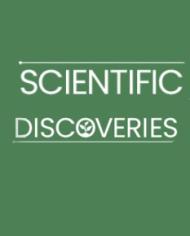ARS researchers found that two disinfectants could reduce, Salmonella on papayas.
Search Articles
-
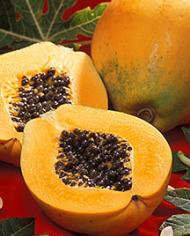
-
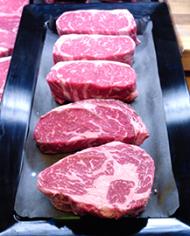
Scientists developed a method to analyze PFAS in foods including chicken, pork, beef, catfish, and eggs.
May 27, 2024 -
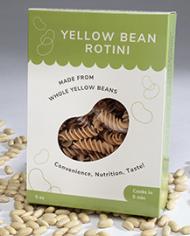
ARS scientists have developed yellow bean varieties that contain more absorbable iron.
Mar 27, 2024 -
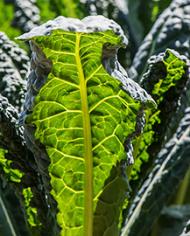
ARS-funded research found a correlation between adequate brain level concentrations of vitamin K and better cognitive function.
Mar 27, 2024 -
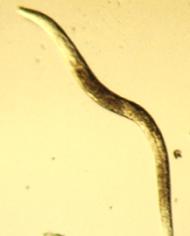
ARS scientists in collaboration with Israeli partners, developed a new formulation to protect beneficial fungi and nematodes from UV radiation.
Mar 27, 2024 -
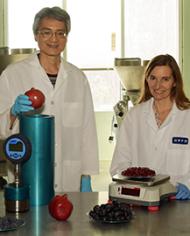
ARS researchers in Albany, CA, are developing a new technology that could "freshen up" the frozen fruit and vegetable market.
Mar 27, 2024 -
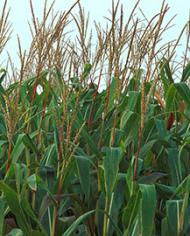
A team from ARS and the University of Minnesota tested soil additives containing nitrogen-fixing microorganisms in a 3-year field study.
Mar 27, 2024 -
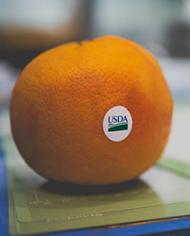
ARS researchers worked with the produce industry to develop a food-safe, compostable adhesive formulation for price look-up labels on produce.
Mar 27, 2024 -

ARS-funded researchers in Little Rock, AR, studied how a mother’s physical activity during pregnancy could affect infant brain development.
Mar 27, 2024 -
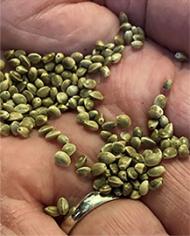
Hempseed cake was mixed into cattle feed for approximately 16 weeks and then meat products from the cattle were tested for CBD and THC levels.
Mar 27, 2024 -
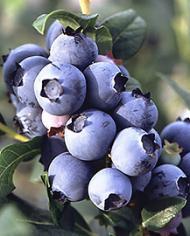
ARS researchers tested natamycin as a postharvest treatment to control and reduce fruit rot in blueberries.
Mar 27, 2024 -
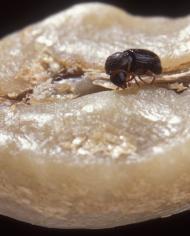
A team of ARS researchers is providing farmers in Hawaii with new apps to help manage threats to their crops.
Mar 27, 2024 -

ARS researchers studied whether different dietary patterns were linked to decision-making performance and stress exposure.
Mar 27, 2024 -
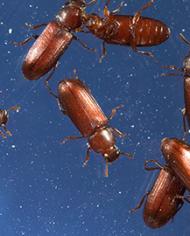
ARS scientists used artificial intelligence to develop image-based identification for five common stored grain insect species.
Feb 12, 2024 -
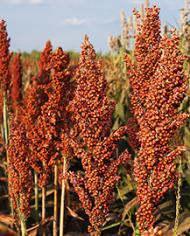
ARS scientists are examining one of the things that makes sorghum naturally resistant to weeds — a natural herbicide the plant secretes from its roots.
Mar 27, 2024 -
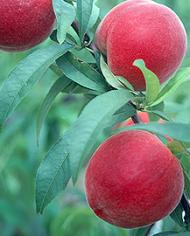
Researchers are developing techniques to trap and transfer earwigs from stone fruit orchards to the pome fruit orchards where they are beneficial.
Mar 27, 2024 -
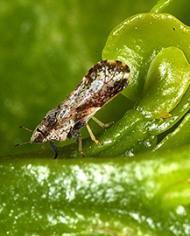
Developed by ARS's researchers, symbiont technology can be delivered to citrus trees in the field and is scalable from a few to millions of trees.
Mar 27, 2024 -
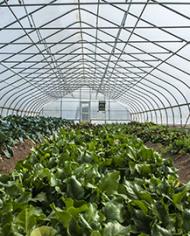
ARS researchers have developed a tool that can provide more precise answers that lead to healthier plants and greater yields.
Mar 27, 2024 -
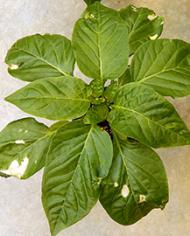
Scientists at the Application Technology Research Unit in Wooster, OH, are discovering that silicon could be a key contributor to agriculture.
Mar 27, 2024 -
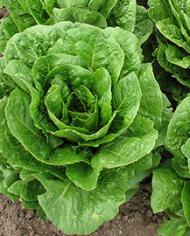
ARS researchers developed an antibody against the most lethal variant of the Shiga toxin, called Stx2.
Mar 27, 2024 -
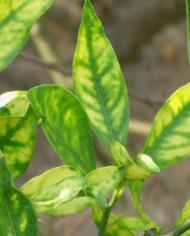
ARS researchers are developing new strategies to combat citrus greening
May 11, 2017 -

Scientists have assembled a collection of yeasts that convert agriculture waste into bio-oil, which is then easily converted into biodiesel or renewable jet fuel.
Apr 18, 2023 -
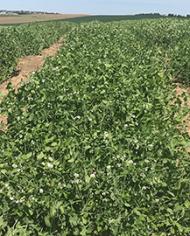
ARS researchers recently developed and released three new pea cultivars that can be grown in the cooler months.
Apr 05, 2023 -
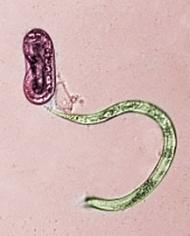
In recent years, farmers in the southeastern United States have struggled with the invasive guava root-knot nematode.
Apr 26, 2023 -
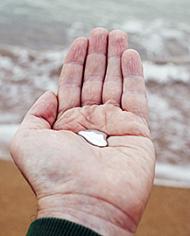
Researchers developed a portable, dual detection biosensor that enables on-site testing of samples for mercury and displays the results on a smart phone.
Apr 26, 2023 -
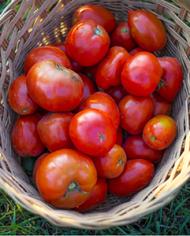
Scientists have identified a tomato gene that's responsible for the softening process in the fruit as it matures, and found a way to inhibit the gene, keeping tomatoes firmer, longer.
Apr 24, 2023 -
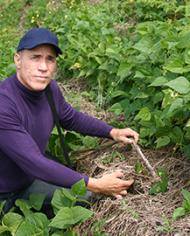
Scientists investigated practices that might help smallholder farmers increase sustainability of their lands and adapt to a changing climate.
Apr 20, 2023 -
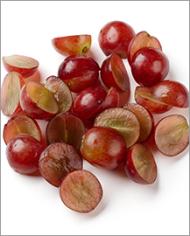
Researchers have teamed up with wine growers to determine whether waste from wine grapes can be converted into healthy food components.
Apr 18, 2023 -

ARS researchers examined rhododendron plants growing in native stands, looking for microbes that cause diseases that affect other plants.
Apr 17, 2023 -

ARS scientists are studying the potential health risks of perfluorooctanoic acid (PFOA).
Apr 04, 2023 -
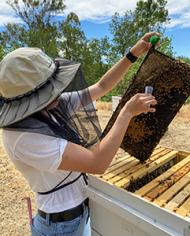
A long-term honey bee monitoring network helps researchers to better understand colony performance and survivorship over multiple seasons.
Apr 19, 2022 -
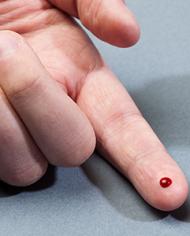
Research at the ARS Western Human Nutrition Research Center revealed that consuming a new type of wheat may help control blood sugar.
Apr 13, 2022 -
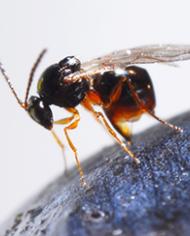
ARS and University of California-Berkeley scientists are evaluating the potential of a parasitoid wasp to control the fruit fly, spotted wing drosophila.
Apr 12, 2022 -
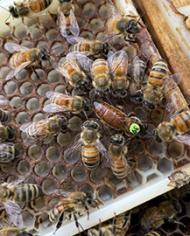
ARS researchers are studying genetics and breeding to make honey bees more resilient.
Apr 06, 2022 -
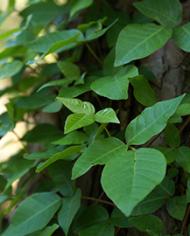
Scientists have developed and are testing a derivative of urushiol that could help desensitize the skin of individuals susceptible to poison ivy dermatitis.
Mar 15, 2022 -
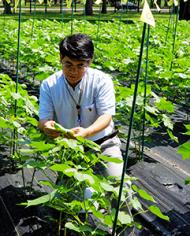
Scientists are producing new strains of cotton that offer both quality and abundance.
Mar 14, 2022 -
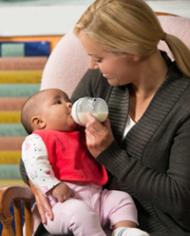
ARS-funded researchers investigated how the content of oligosaccharides differed in milk produced by women with normal weight, overweight, or obesity.
Mar 14, 2022 -
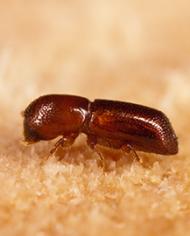
ARS scientists are combatting pests and diseases affecting avocado production in the U.S.
Mar 14, 2022 -
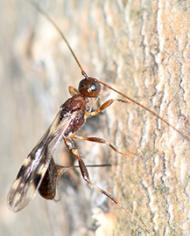
In the search for natural enemies of the emerald ash borer, one promising candidate is a tiny 5-7 millimeter-long parasitic wasp that lays its eggs on EAB larvae.
Mar 10, 2022 -
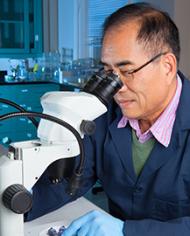
ARS scientists found that methyl benzoate can repel, and even kill, other insects and pests, including the spotted wing drosophila fly.
Mar 09, 2022 -

A stabilizer created using corn starch and vegetable oil opens the door to all sorts of useful food-grade and industrial applications.
Mar 07, 2022 -
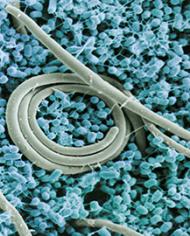
ARS scientists in collaboration with researchers at the University of Georgia, developed a series of algorithms capable of effectively predicting the prevalence of Salmonella.
Mar 03, 2022 -
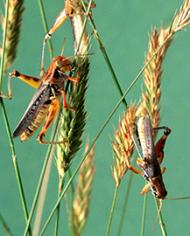
Often viewed as pests, grasshoppers may have a larger environmental role to play.
Mar 02, 2022 -
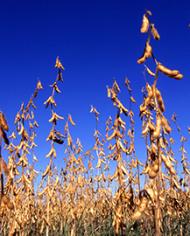
ARS scientists studied how high-oleic soybean oil--an oil with high amounts of monounsaturated fats--modifies LDL cholesterol in comparison to other oils.
Feb 25, 2022 -
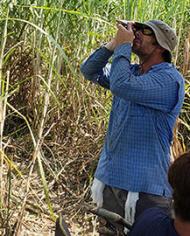
A new variety of sugarcane has high fiber content, excellent regrowth ability, high stalk population, cold tolerance, disease resistance, and excellent biomass yield.
Feb 25, 2022 -
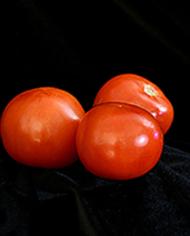
Researchers developed a cool new intervention technology involving the use of cold plasma and hydrogen peroxide aerosols.
Feb 22, 2022 -
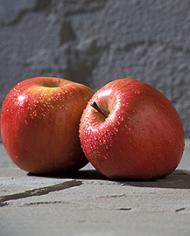
Researchers found that specific fruits and vegetables rich in plant compounds known as flavonoids may significantly reduce the risk of Alzheimer’s dementia.
Feb 17, 2022 -
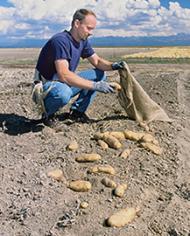
ARS scientists created a new potato variety with greater yields and better processing qualities, especially for making chips and fries.
Feb 16, 2022 -
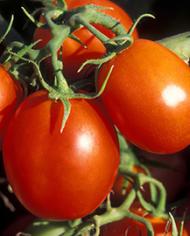
Combining the biofumigant with an herbicide seems to curb infestations of purple nutsedge as well as reduce nematodes and the tomato wilt bacterium.
Feb 14, 2022 -
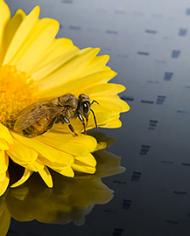
Researchers with the ARS Honey Bee Breeding, Genetics, and Physiology Research Unit have identified a region of the honey bee genome linked to reduced colony defensiveness.
Feb 11, 2022 -
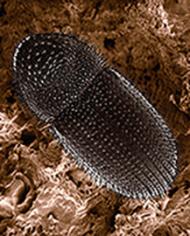
ARS scientists studied Puerto Rican fungal strains as possible biological control agents for managing the coffee berry borer in an environmentally sustainable manner.
Jan 28, 2022 -
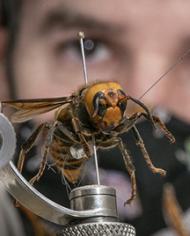
ARS is working with the Washington State Departments of Health and Agriculture and USDA’s Animal and Plant Health Inspection Service to prevent the northern giant hornet, formerly known as Asian giant hornet, from becoming established in the United States.
Aug 25, 2021 -
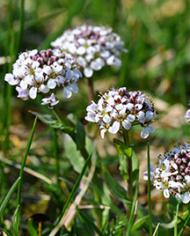
Researchers determined that winter camelina and pennycress are effective in reducing excess nitrogen and preventing its escape from farmland.
Mar 31, 2021 -
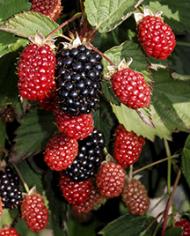
ARS researchers released two new varieties of blackberry: ‘Twilight’ and ‘Hall’s Beauty.’
Mar 25, 2021 -

A progressive resistance strength training regimen may improve muscle strength and muscle fatigue in older adults with limited mobility.
Mar 23, 2021 -

Blood levels of LDL cholesterol were significantly lower in women who consumed stearic and oleic acid diets than in consuming a palmitic acid diet.
Mar 23, 2021 -
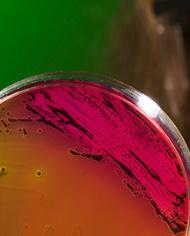
Certain plant-based compounds and probiotic cultures are effective for keeping poultry and eggs free from harmful bacteria.
Mar 23, 2021 -
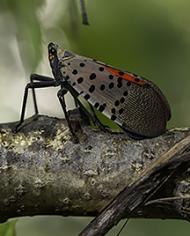
A team of ARS scientists in cooperation with Pacific Biosciences published the first genome of the invasive spotted lanternfly.
Mar 23, 2021 -
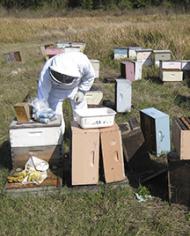
Putting honey bees into indoor cold storage in October rather than November increases their chances of surviving the winter.
Mar 22, 2021 -
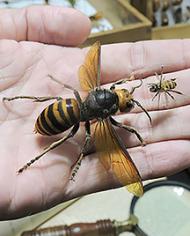
ARS is helping lead the mapping of the first complete genome of the Asian giant hornet.
Mar 11, 2021 -
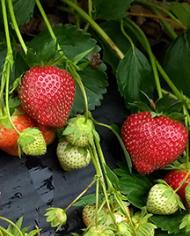
Learn about the Keepsake strawberry developed by ARS
Mar 11, 2021 -
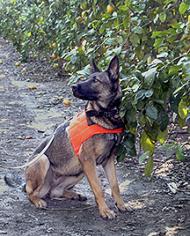
Scientists are using dogs to sniff out citrus orchards for the devastating pathogen HBL, also known as Citrus Greening.
Mar 11, 2021 -
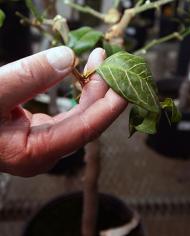
Researchers found a way to distinguish between two citrus diseases that are similar in appearance, but dangerously different.
Jul 27, 2020 -
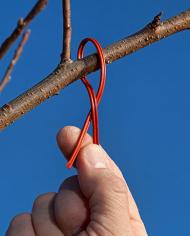
ARS researchers and their collaborator have demonstrated that an areawide mating disruption approach could control peach tree pests.
Jul 27, 2020 -
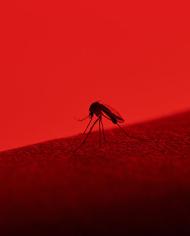
ARS scientists have developed a new test to quickly detect Zika virus in mosquitos.
Jul 27, 2020 -

People in their 70s and 80s can improve their mobility and function by walking 30 minutes a day.
Jul 27, 2020 -
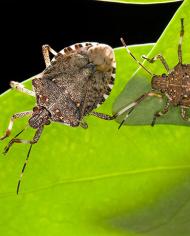
ARS scientists are looking into “attractive” ways to kill brown marmorated stink bugs.
Jul 27, 2020 -
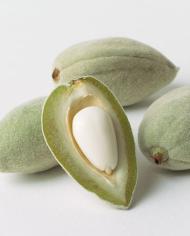
Scientists developed a effective, energy-saving technology to help keep microbes and mycotoxins off almonds.
Jul 27, 2020 -
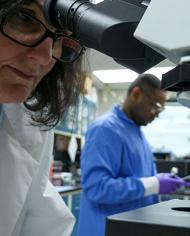
A team of researchers, including ARS scientists, is on the cusp of releasing the world's first treatment for peanut allergy.
Jul 27, 2020 -
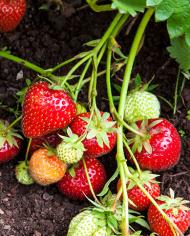
A way to control mold while keeping the strawberries fresh and tasty.
Jul 27, 2020 -
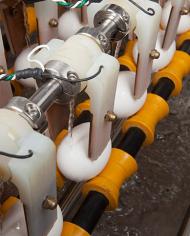
ARS scientists at the Food Safety and Intervention Technologies Laboratory have hatched a way to produce safer eggs without jeopardizing quality.
Jul 27, 2020 -

Scientists at ARS’s Children’s Nutrition Research Center in Texas may have found a breakthrough for one of the biggest health concerns in the United States.
Jul 26, 2020 -
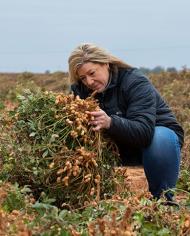
ARS scientists recently released “Contender” peanut, which is high in oleic fatty acids.
Jul 24, 2020 -
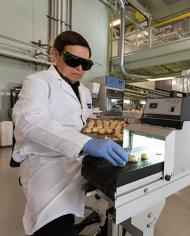
Good food going bad is a sad thing when many people are going hungry, but ARS researchers have addressed that issue.
Jul 24, 2020 -
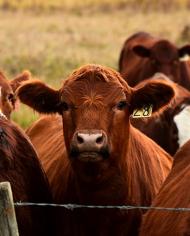
Raising beef cattle without antibiotics may not reduce levels of antimicrobial resistance.
Jul 24, 2020 -

ARS researchers are working to counter Emerald Ash borers with releases of the parasitic wasp Tetrastichus planipennisi and gene-based control.
May 24, 2019 -
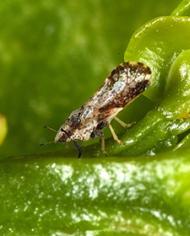
A team of ARS and Boyce Thompson Institute researchers in Ithaca, NY, may have found a weak link in the citrus-greening disease cycle.
May 09, 2019 -
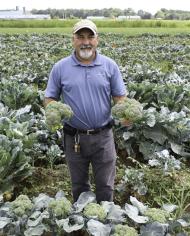
ARS researchers decided to examine the genetics that underpin broccoli's ability to cope with heat stress.
May 07, 2019 -
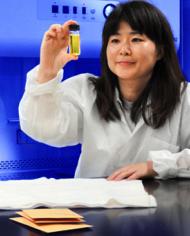
ARS researchers have created silver nanoparticles whose antimicrobial properties can be passed directly into the cotton fibers that make up fabrics and textiles.
Apr 26, 2019 -

ARS scientists are using a device known as "SHIME," to study the influence of dietary changes on the activity of these microbes in a simulated environment outside the human digestive tract.
Apr 03, 2018 -
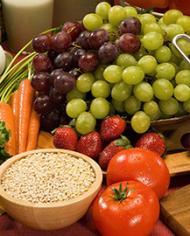
The USDA Branded Food Products Database contains nutrition details on more than 80,000 name brand prepared and packaged foods available at restaurants and grocery stores.
Mar 29, 2018 -

ARS scientists have linked excessive consumption of foods with higher calories, sodium, saturated fat, and trans-fat with increased disease risk.
May 04, 2017 -
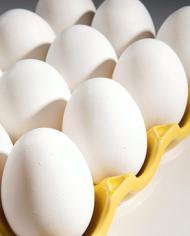
ARS scientists designed and developed portable and stationary LED-light grading systems and developed a computerized software system.
Apr 26, 2017 -
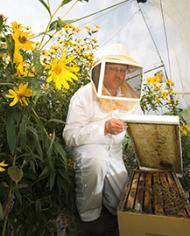
Collaboration between ARS scientists and more than 30 national and international institutions resulted in two new pollinator bee genome sequences.
Apr 26, 2017 -
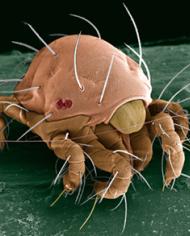
ARS Electron and Confocal Microscopy Research Unit helps expand the scientific understanding of microbes, pests, and pathogens that attack crops, infect livestock, and sicken thousands of people each year.
May 23, 2019 -

ARS researchers compared egg storage methods to verify the benefits of egg washing and refrigerated storage.
May 23, 2019 -
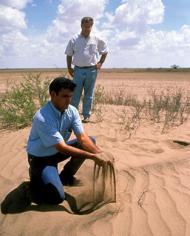
Researchers are exploring the use of robots to take on hazardous duties related to studying wind erosion of soils and the expansion of deserts.
May 22, 2019 -
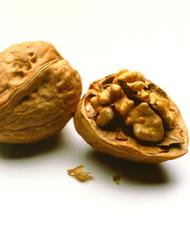
ARS physiologists found that not all those calories may be available for uptake and use by the body.
May 21, 2019 -

ARS nutrition researchers combined seven different analytical methods to resolve conflicting information about vitamin D levels needed for a healthy diet.
May 21, 2019 -
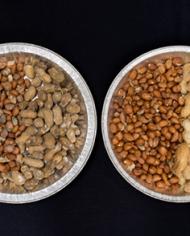
The researchers found that raising the temperature in stored peanuts solved the mold problem without affecting peanut quality.
May 15, 2019 -

ARS researchers in Oregon have bred more than 20 varieties of hops since the 1950s.
May 15, 2019 -
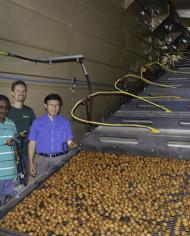
ARS researchers teamed with University of California-Davis scientists to devise a thriftier way to dry walnuts.
May 03, 2019 -
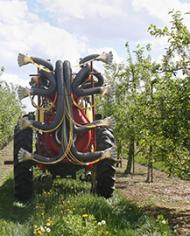
A team led by ARS scientists in Wooster, OH, developed and tested the smarter sprayer technology.
Apr 22, 2019 -
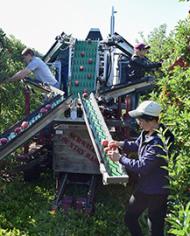
Researchers have developed a self-propelled apple-harvest and in-field-sorting prototype machine.
Apr 17, 2019 -
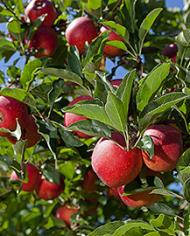
ARS scientists investigated using a robotic vision system, RoTSE, to prune fruit trees during the winter.
Apr 17, 2019 -
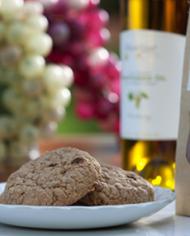
ARS chemists found the byproducts of wine-making can be made into a health-promoting flour.
Apr 02, 2019 -
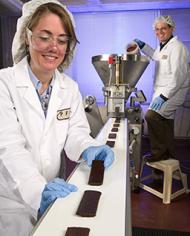
An ARS team devised a two-step system that dries fruits and vegetables using 75 percent less energy than traditional methods.
Mar 04, 2019 -
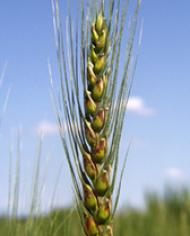
Work by the U.S. Wheat and Barley Scab Initiative, an ARS-led coalition, has reduced scab losses eightfold since 2004.
May 28, 2018 -
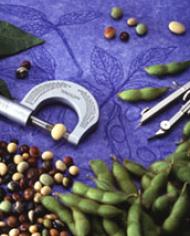
In an effort to reduce cooking time, ARS scientists discovered that genetic differences exist among beans that determine how long it takes the bean to cook.
May 25, 2018 -
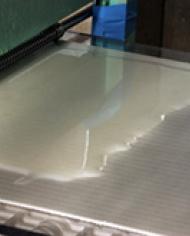
ARS scientists have developed a biodegradable edible film from casein, a milk protein, which can be used as a food wrap.
May 01, 2018 -
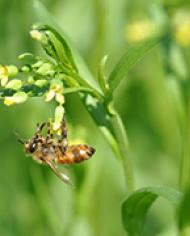
Two oilseed crops that are good for pollinators—pennycress and camelina—can fit into profitable rotations with corn and soybeans.
Apr 24, 2018 -
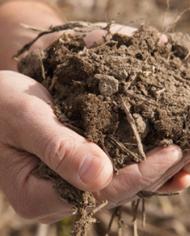
ARS scientists have shown that anaerobic soil disinfestation is a promising alternative to methyl bromide fumigation.
Apr 19, 2018 -
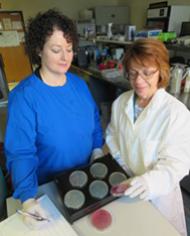
ARS scientists have worked with public and private partners to develop animal vaccines, antibody therapies, and strategies for enhancing the immune systems of farm animals.
Apr 17, 2018 -
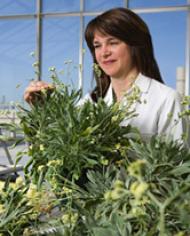
ARS scientists have made breakthroughs in producing passenger tires with guayule rubber.
Apr 11, 2018 -

ARS scientists released two new varieties of potatoes—'Clearwater Russet' and 'Blazer Russet'—that will be used by McDonald's for French fries.
Mar 22, 2018 -

Scientists have found a relationship between cognitive control and emotional eating behavior in preschool children.
May 23, 2017 -

Collaboration between ARS scientists and more than 30 national and international institutions resulted in two new pollinator bee genome sequences.
Apr 26, 2017 -
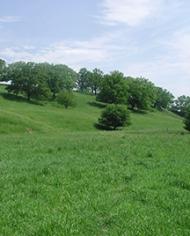
ARS scientists have developed and released "Hidden Valley" meadow fescue.
May 12, 2017 -
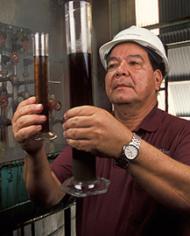
ARS researchers developed a new heat treatment for use during the sugarcane juice clarification process to eliminate microbial contamination.
May 04, 2017 -
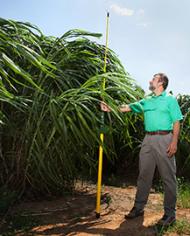
ARS researchers are improving bioenergy production to advance the economic feasibility of producing high-quality biodiesel and jet fuels from renewable biomass.
May 03, 2017 -
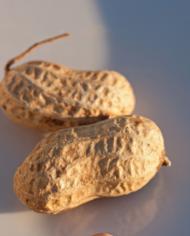
ARS scientists and collaborators developed and released the new OLé peanut.
May 02, 2017 -
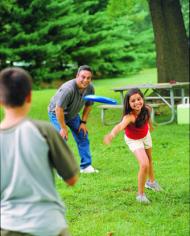
Researchers found that children who were overweight or obese gained more weight during the summer than during the school year
Apr 26, 2017 -
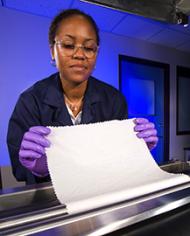
ARS has developed an improved cotton-based, blood-clotting wound dressing.
Apr 20, 2017 -
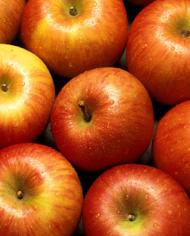
ARS scientists, in collaboration with the Children's Hospital Oakland Research Institute, developed a low-calorie, fruit-based snack bar fortified with micronutrients and fiber.
Apr 14, 2017 -
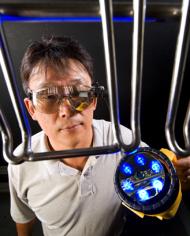
ARS collaborated with the FDA to develop a low-cost, portable detection system that can differentiate between active and non-active toxins in food samples
Mar 03, 2017



